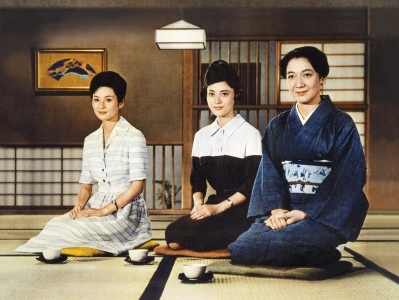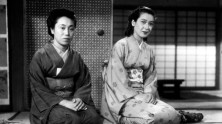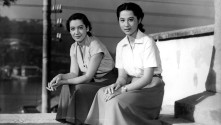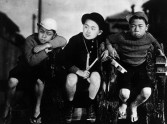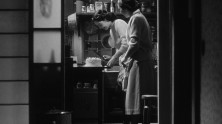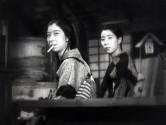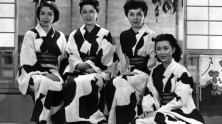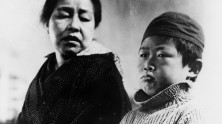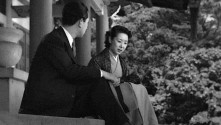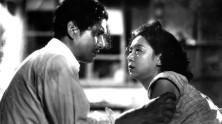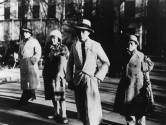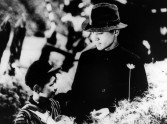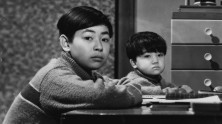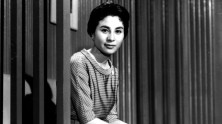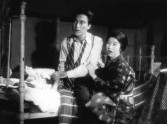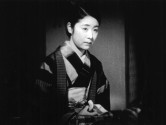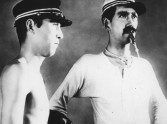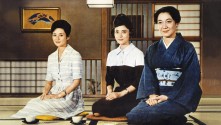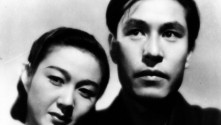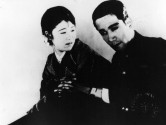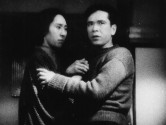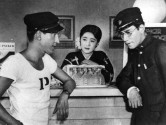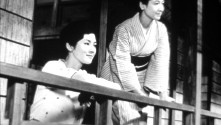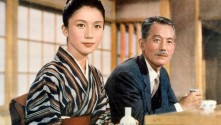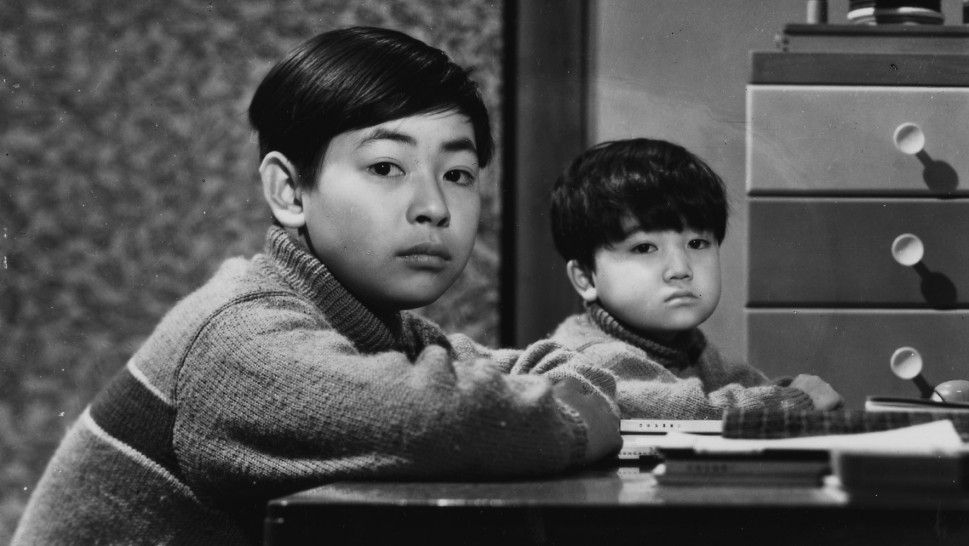
Good Morning
(Ohayo)
With Shitara Koji, Shimazu Masahiko, Sada Keiji.
Japan, 1959, 35mm, color, 93 min.
Japanese with English subtitles.
Print source: Janus Films
Ozu’s soft spot for children takes center stage in the playfully self-reflexive Good Morning. Minoru (Shitara Koji) and Isamu (Shimazu Masahiko) are obsessed with watching television and farting on command. Their father (Ryu Chishu) rejects their demand for a television set, and in retaliation the boys refuse to speak, though they continue to fart. The children’s silence stirs up unpleasant rumors in their suburban neighborhood, where gossip travels among aunties with as much unnecessary fabrication and exaggerated paranoia as it does in Alfred Hitchcock’s The Trouble with Harry (1955). The film’s nimble pace, polychromatic palette, and scatological humor (like the flatulence that punctuates the plucking of Mazuyumi Toshiro’s score) makes its intricate structure feel perfectly airy. The boys’ silence strike resembles the hunger strike seen in I Was Born, But… —as do their matching outfits—but this is only one of many references to the children of Ozu’s filmography: the prankster in A Straightforward Boy, the scrappy boys of An Inn in Tokyo, the bed-wetter in Record of a Tenement Gentleman, the boys who are obsessed with train tracks in Early Summer, and so on. Of these children Minoru and Isamu are among the wealthiest, making Good Morning a major evolution in Ozu’s insight that to be a healthy child is to express wants and needs without modesty or guilt.
